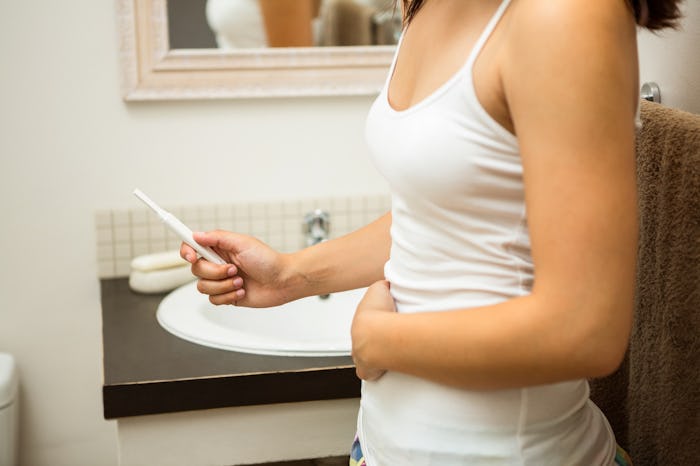Life

Here's How Many Eggs You Have In Your 20s Vs Your 30s
If you're like me, you like to evaluate the pros and cons of major life decisions. When I was trying to decide when to start a family, I weighed things like my career, education, and financial stability against the idea of getting childbearing out of the way in my 20s. Like me, you might wonder if waiting to start a family in your 30s is best, or if it might make it harder for you to conceive. I know I definitely asked myself, how many eggs do you have in your 20s vs. your 30s? And, more importantly, should this information change my plans? To learn the answer to that question, here's a brief, but fascinating, lesson in human reproduction.
According to Society of Reproductive Medicine, the number of eggs you have decreases as you age. While healthy fetuses at 20 weeks can have between 6 and 7 million eggs inside their still-forming bodies already, at the time of puberty that number decrease to between 300,000 and 500,000. By the time a person reaches age 37, according to the Society of Reproductive Medicine, they will only have about 20,000 eggs remaining. According to the same website, you will only actually ovulate about 300 times between puberty and menopause. Your remaining eggs will degrade and die over time, through a process called atresia, regardless of whether or not you ovulate, are pregnant, or use birth control. Wow. The more you know, right?
Not only does the number of eggs you have decrease with age, but this process also speeds up. According to the Mayo Clinic, atresia becomes more rapid when a person reaches their mid 30s, impacting not only the quantity, but the quality of remaining eggs. This can impact fertility and increase the chance of miscarriage and chromosomal abnormalities, should you get pregnant.
People with younger eggs might also have an easier time getting pregnant. For this reason, the Mayo Clinic website notes that people who want to wait to conceive in their 30s, or beyond, might consider freezing their eggs in their 20s for use when they are ready to start a family. Using younger and healthier eggs can improve a person's odds of conception, as well as having a healthy pregnancy and baby.
The choice to start a family is about as personal as any choice could possibly be. Regardless of whether you choose to try to get pregnant in your 20s, when your fertility peaks, or choose to wait until your 30s or beyond, it's always best to consult an obstetrics provider to learn more about your fertility and options.